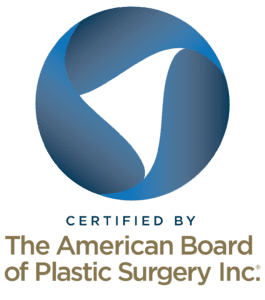Americans spend billions of dollars on plastic surgery every year. Cosmetic procedures that enhance our appearance and turn back the clock are more popular than ever. But like every surgery, plastic and reconstructive surgery contains risk factors, and cosmetic surgery is no exception.
Although often safe, there are risks of plastic surgery. Below are some of the most common risks and complications. Please remember that you can reduce the chances of problems by selecting a board-certified plastic surgeon in Houston experienced in the plastic surgery procedure you want. What are some of the plastic surgery risks? We will answer this question below.
Seroma
This is a problem where sterile body fluid or serum collects under the skin, leading to pain and swelling. This can happen after all surgeries, but it happens the most with tummy tuck patients, occurring in 20-30% of cases.
After your plastic surgery procedure, seromas may get infected, so your doctor might advise draining it with a needle. This usually eliminates the seroma, but it may reoccur.
Hematoma
This is a pocket of blood that looks like a painful, large bruise. It happens in about 1% of breast cosmetic procedures, including breast surgery types like breast reductions and breast lifts. It also can happen after facelifts in about 1% of patients.
Hematoma is a risk in all cosmetic surgeries, but it can be treated by draining the blood with a syringe or needle if the collection gets too large. You may need another surgical procedure in the worst cases, which means using anesthesia.
Deep Vein Thrombosis (DVT)
This is a complication where a blood clot forms in a deep vein in the leg. If the clot breaks off, it may travel to the lungs and form a pulmonary embolism. This is considered a medical emergency because it can lead to severe problems and even death.
Fortunately, DVTs are rare in cosmetic surgery, occurring in about .1% of all cases. Tummy tucks cause the most DVTs in plastic surgery, with a rate of just under 1%. However, the risk of blood clots is five times higher for people having more than one plastic surgery procedure at once.
Scarring
Most surgeries, even the most minimally invasive procedures, involve some degree of scarring. Cosmetic surgery’s purpose is to make you look better, so noticeable scars can be a problem.
Most scars fade with time and are barely noticeable, but hypertrophic scarring that leaves a red, thick scar happens in about 2% of tummy tucks.
Nerve Damage
The possibility of nerve damage occurs in many surgeries. For example, tingling and numbness after cosmetic surgery can indicate nerve damage. But in most cases, this is a temporary problem.
For example, many women have sensitivity changes in their breasts after breast augmentation surgery, but this is usually temporary. However, about 15% do report a change in nipple sensitivity that is permanent.
Infection
Plastic surgeons will take careful steps to ensure that you don’t get a wound infection after your cosmetic surgery, but it can still happen. It’s estimated that about 2% of women have an infection after breast augmentation.
Also, skin infection cellulitis can happen after many plastic surgeries, such as mommy makeovers where one or more procedure was done. This is why it’s essential to keep your incisions clean, take all medications prescribed by your doctor, and inform her if you think your surgical site is getting infected.
Organ Damage
Liposuction is usually a safe procedure, where the surgeon inserts a cannula under the skin and removes stubborn fat deposits. But plastic surgeons may insert the cannula too deep and puncture the abdominal organs. This perforation of the organs can be fixed, but it requires more surgery. In the worst cases, it can be fatal.
Anesthesia Complications
Many plastic surgeries require general anesthesia. It’s safe for most patients, but it can lead to complications if the anesthesiologist makes a mistake or you’re allergic to the anesthetic. Some of the complications from general anesthesia include heart attacks, stroke, and death.
A few patients may wake up during the procedure, which is rare.
When you wake up from general anesthesia, you may feel sick and tired for a day or two, but most people improve after that.
Dissatisfaction With Results
Most people are happy with their cosmetic procedure, but some may decide they aren’t pleased with the results after one or more of their plastic surgery procedures. If this happens to you, it may be necessary to have revision surgery.
Questions and Answers
How often do plastic surgeries go wrong?
About 1% of the time plastic surgeries result in complications.
Who should not get plastic surgery?
Every surgery, including cosmetic procedures, involves risks. Individuals with a body mass index (BMI) of 30 or higher (obesity), diabetes, or smokers may face higher risks of complications like blood clots in the legs or lungs and impaired healing.
What is the most painful plastic surgery?
Patients often describe Brazilian butt lift as the most painful surgery, followed by tummy tuck, breast implants, liposuction, breast lifts/reductions, and jaw surgery. Dental implants can also be painful due to the need to eat during the healing process.
What cosmetic procedures carry the highest risk?
When it comes to the rate of incidence and risk factors, the procedures that carry the most risk are tummy tucks, liposuction and facial reconstruction.
How common are breast implant infections?
Infections occur in fewer than 2% of cosmetic augmentations, usually manageable with antibiotics.
Summary

As with many surgeries, the most severe problems often happen with specific populations, including older patients and smokers. It is important to note that if you keep up a healthy diet and exercise, complications become rarer.
It is important to note that weight has an impact on all surgery. If you keep a lower body mass index, this is ideal for surgery. You can lower your risk of side effects by choosing the best surgeon in your area and making sure the surgery is in an accredited facility.
Request a Houston Plastic Surgery Consultation
Interested in plastic surgery in Houston? Please set up a consultation with Dr. Ashley Steinberg today. She’ll talk to you about the benefits and risks of the procedure to determine if you’re a good candidate for plastic surgery.
References
10 Of The Most Common Plastic Surgery Complications. (2019). Accessed at https://www.healthline.com/health/most-common-plastic-surgery-complications
Managing Complications In Abdominoplasty. (2017) Accessed at https://www.e-aps.org/journal/view.php?doi=10.5999/aps.2017.44.5.457













